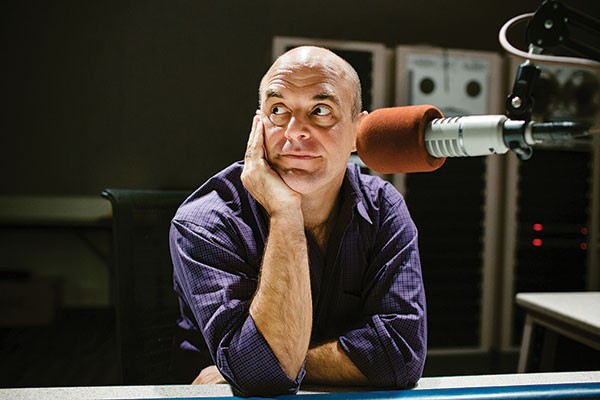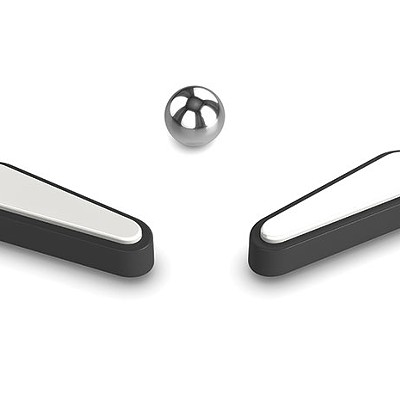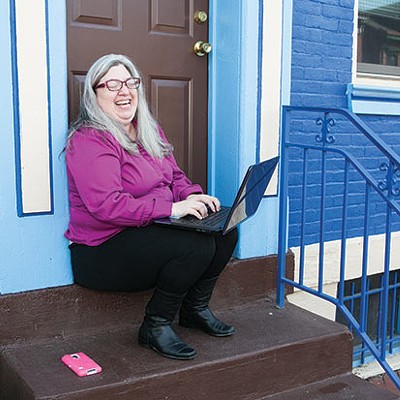For just the second time in the show's nearly 16-year history, National Public Radio's Wait Wait ... Don't Tell Me is coming to Pittsburgh, on Oct. 16. The program began in January 1998 as a Chicago-based comedy news-quiz show. Current host Peter Sagal, a frequent panelist, began hosting duties a few months later and has been at the helm ever since. Now with one of public radio's largest audiences (more than four million listeners per week), Sagal argues the show began to get much better, and more popular, when it started taping in front of a live audience in 2005. In a chat with City Paper, Sagal sounds off on the beauty of Pittsburgh and why Americans like their news with a side of laughs.
In 2011, you told a Wait Wait ...Don't Tell Me contestant that Pittsburgh was like "Oz with a bad baseball team. It's amazing how beautiful it is." When was your first visit to Pittsburgh?
I had never been to Pittsburgh [until the show's 2008 taping]. Nor had I ever seen anything that would properly depict its appearance. When I first drove into Pittsburgh, we went through that tunnel, and we saw the city at the corner of three rivers for the first time, and then wow! I thought, "My God, this place is beautiful!" On the morning of the taping, I went for a run around the riverfront, and I went by the Steelers stadium, the Pirates stadium, etc., and I was just blown away by the beauty. I compared it to Oz, I think, because Pittsburgh was like this gleaming city that just seemed to come out of nowhere.
Wait Wait ... Don't Tell Me is a show for nerds, for news geeks. But now you are one of NPR's most popular shows. Is there anything odd about being alternative and popular? Are you like an indie band that crossed over?
We're public radio. We ain't never going to be cool. Ira Glass, the host of This American Life, has tested the limits of this thesis, but still, public radio is not cool. Here's an example. What is one of the hot TV shows of the moment? Homeland. I can tell you eight things about Homeland. Why? Because it's on TV. TV has a place in our culture that radio will never have. There is very little reaching over into the culture at large. Public radio is a niche thing.
I've noticed that a lot of my friends' children are excited about attending this upcoming show in Pittsburgh.
There is a juvenile quality to the humor on our show. The kids who like our show are particularly the dorky kids. And I get that, because I was a dorky kid. One of the things I loved when I was a kid was being able to enter the adult world and feel welcome. We welcome the dorky kids to our audience with fart and poop jokes. We're not sitting around like they do on CNN and talking about the imminent threat of ISIS. We're joking about the fact that we're at war against this group and we don't even know what to call it.
Americans — especially educated, younger Americans — seem to gravitate toward news-comedy shows like Bill Maher, Jon Stewart or John Oliver. These are shows that seamlessly blend comedy with real investigative news reporting. Do you see yourselves as part of this trend?
We try not to have angry rants, like you might see on Bill Maher. We can get laughs insulting things that our audience doesn't like, but I don't like doing that. Instead, we honestly try to give people a break from 24/7 hate. We are noncombatants in this rhetorical war between right and left. A lot of our stuff is just silly. We talk about the Canadian who was caught at the border with turtles in his pants — 51 turtles, to be exact. Or the beauty queen whose talent was dressing a deer. Do you remember the idea of "Two Minutes Hate" from George Orwell's novel 1984? [In the novel, this is a time every day that you are supposed to watch a film portraying your enemies and then express hatred for them.] We are a vacation from this way of thinking. George Orwell would probably be surprised, not at the fact that his idea of "Two Minutes of Hate" had come true, but that it had become so profitable.



















